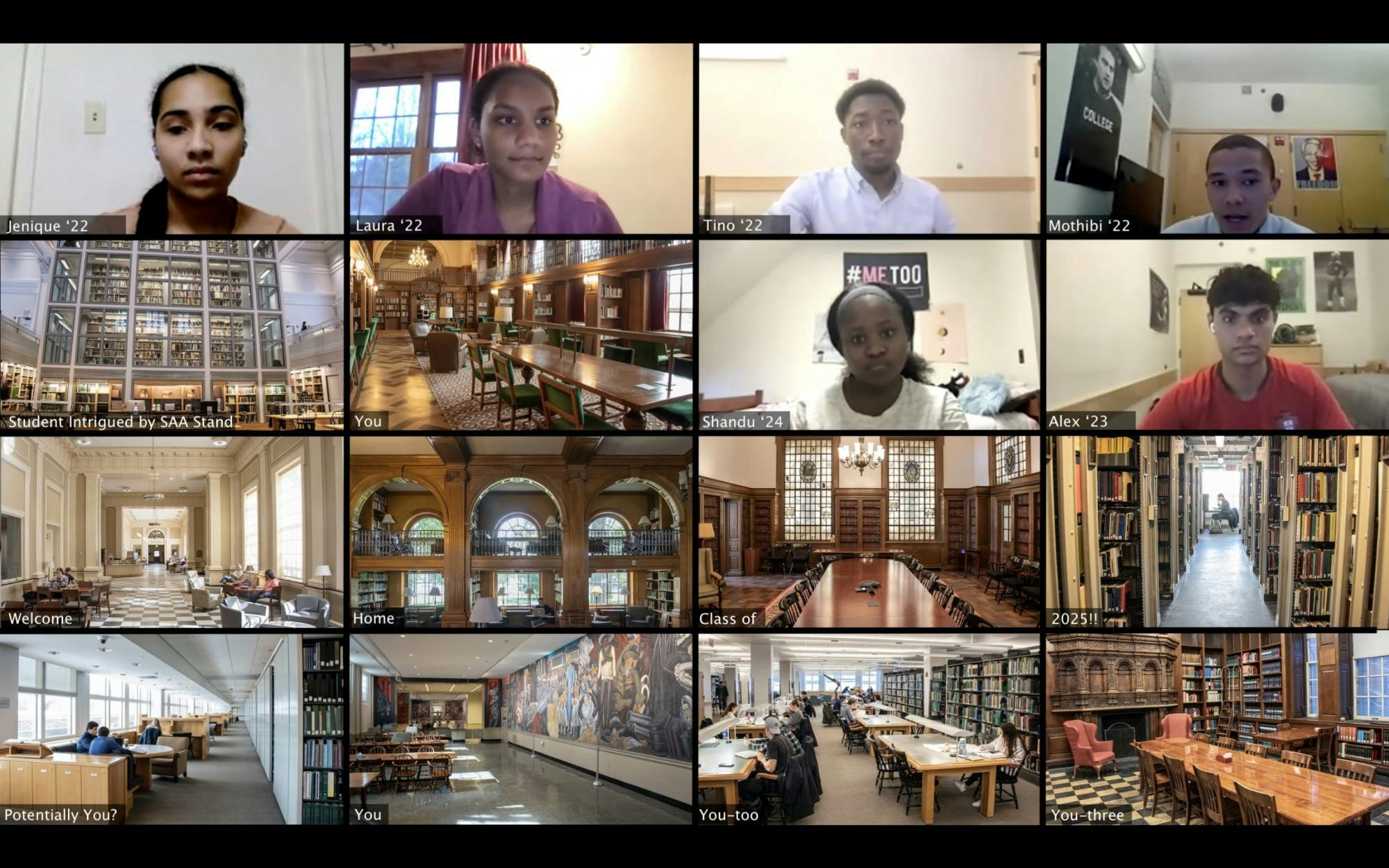The Sadie Alexander Association, named after the first African American person to receive a Ph.D. in economics, is looking to foster more diversity in Dartmouth’s economics department. Since its founding in the spring of 2021, the SAA has taken steps in strengthening introductory courses’ teaching assistant system and bringing guest speakers to campus to discuss topics related to inequality and discrimination.
Founding member and co-director of SAA Mothibi Penn-Kekana ’22 said that ideas to create the association first started in the spring term of 2021, when he and members of the department’s diversity committee — which includes economics professors Andrew Levin and Claudia Olivetti, the SAA’s faculty advisors — discussed inclusivity and stereotypes about the department.
From these discussions, the SAA was established to encourage students of color to pursue economics and provide “continuous feedback” to the department on making economics more inclusive, according to Olivetti.
To that goal, the economics department raised the median grades for economics courses. This past December, after 10 years enforcing a B median, the department voted to raise the median to a B plus in an attempt to encourage more first-generation and minority students, who may have “no prior economics background and whose family might not have gotten the Wall Street Journal or talked about the stock market at the dinner table” to enroll, according Levin.
The SAA is also calling for the department to increase the number of student teaching assistants for introductory economics classes and hire students of color when possible, Penn-Kekana said. According to Olivetti, who was a first-generation student herself, working with the SAA made her realize how “important” it was to have TAs in introductory classes. She added that although a given economics professor may not be a person of color, having a TA from an underrepresented minority group can create “role models” early on for some students.
In addition to strengthening the TA program, the SAA is partnering with the economics department on a lecture series called Inequality, Discrimination and Opportunity. According to Penn-Kekana, each term, the SAA helps identify a list of potential guest lecturers that the diversity committee coordinates to invite. Past speakers include public policy professor Rucker C. Johnson from the University of California, Berkely and president of the National Economic Association Nina Banks. In the coming spring, research associate Trevon Logan from the National Bureau of Economic Research is scheduled to speak at the College.
The association has also invited Byron Boston ’81 — CEO of real estate investment firm Dynex — to speak to the club, according to SAA secretary Jenique Richards ’22. She added that Boston talked about his experiences at Dartmouth and his career as a Black man working in the finance industry.
Richards said that there are “a lot of things on the to-do list” for SAA, including a course selection meeting to provide advice for students, a buddy program to partner lower and upperclassmen and an upcoming career workshop with the Center for Professional Development. To further support prospective economics students, the SAA has also sent members to introduce themselves as a resource to all ECON 1 classes.
Crystal Igwe ’24, a prospective economics major, said she has found SAA emails to be helpful because they include links to different opportunities to get involved with economics programs. Igwe added that she plans to attend the course selection meeting to see what classes she should take in the spring term.
Despite the initiatives that it has taken, the economics department still has no Black faculty members, according to Levin. He said that recruiting is challenging due to Dartmouth’s rural location and professors with spouses having to make a joint decision to move to Hanover. He added that instead of hiring one single Black faculty member, the department’s goal is to create a “department as diverse as possible.”
“Because of systemic problems, and the whole field of economics for 100 years [being largely white], the number of tenured Black economics professors at the top 50 research universities is small,” Levin said. “It’s a terrible problem, but it’s a fact. This is a symptom of a long-standing issue.”
Because economics studies “the world, money and how it’s all intertwined” and involves everyone, Richards said she thinks the subject should be more diverse in its teachers and students. Besides herself, Richards said she knows “only four other seniors who are Black and econ majors.”
In economic terms, demand has increased for diverse economics departments; however, the supply of professors is largely inelastic and limited, according to Levin. Part of the SAA’s mission, he added, is to encourage minority students to take classes in economics and major in economics, so that “the supply curve can shift outwards.”
“We say we need some patience, but we also need some persistence and we need to make some progress,” Levin said.

Arizbeth Rojas ’25 is a managing editor of the 181st directorate from Dallas, TX. When she’s not listening to DJ Sabrina the Teenage DJ or planning her next half marathon, you can find her munching on a lox bagel.




